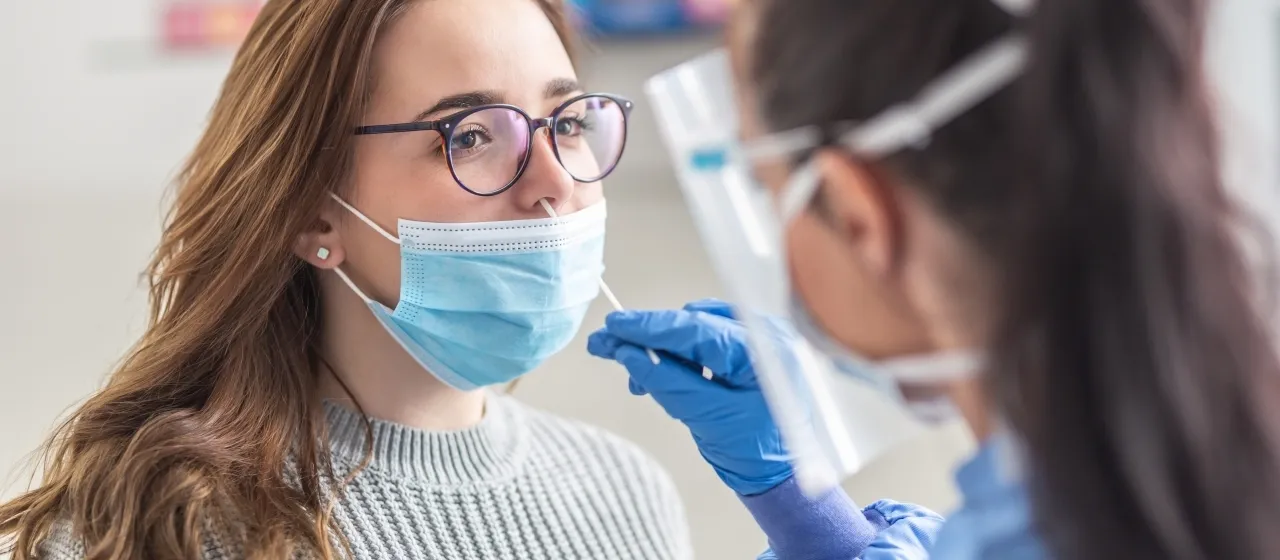OXIGEN salud
Respiratory conditions

OXIGEN salud
Respiratory conditions
COVID-19 is an infectious disease caused by the coronavirus SARS-CoV-2 identified for the first time in China at the end of 2019. In 2020, it spread throughout the world causing a pandemic and a medical and economic crisis. Although most infected people have mild symptoms (80 % according to the WHO) or no symptoms at all, it can be a serious illness with severe complications in the airways, in particular in the lungs, and can even cause death.
The transmission of this virus is airborne through the inhalation of droplets from an infected individual who coughs, sneezes, or talks; and also, although much less probable, through infected surfaces.
Individuals of all ages can have coronavirus. The age group with the most infections is those over 60 years old, and the mortality rate increases in those individuals over 80. In contrast, children are the less affected group with the lowest mortality rate and with mild symptoms or asymptomatic.
Pregnant women and individuals with severe risk factors such as cancer, arterial hypertension, cardiovascular or lung diseases, obesity or diabetes are considered vulnerable individuals because they are at a higher risk of developing severe symptoms.
COVID-19 symptoms have changed since the outset of the virus, given its evolution and different variants. However, symptoms can be classified into two groups: mild and severe.
It is recommended to take a test when noticing any of these symptoms, such as a rapid antigen test or a PCR test, to confirm a possible infection and receive appropriate treatment if needed.
Since the start of the 2020 pandemic, pharmaceutical laboratories have been working on finding an efficient treatment against COVID-19. For the time being, there has been considerable progress.
For those who catch the virus and show symptoms, there are prescribed medicines to alleviate the effects and rest and drinking liquids are recommended in mild cases. For more severe cases, patients require hospital admission and even mechanical ventilation or intubation in ICU.
Given it is an infectious virus, the best treatment against COVID-19 is prevention. Medical protocols highlight how crucial it is to wear masks, air out closed rooms, handwash, stay home and keep the minimum distance between individuals.
Medical authorities recommend getting vaccinated with some of the approved vaccines to contribute to group immunity and avoid the most severe cases.
Shall we call you?